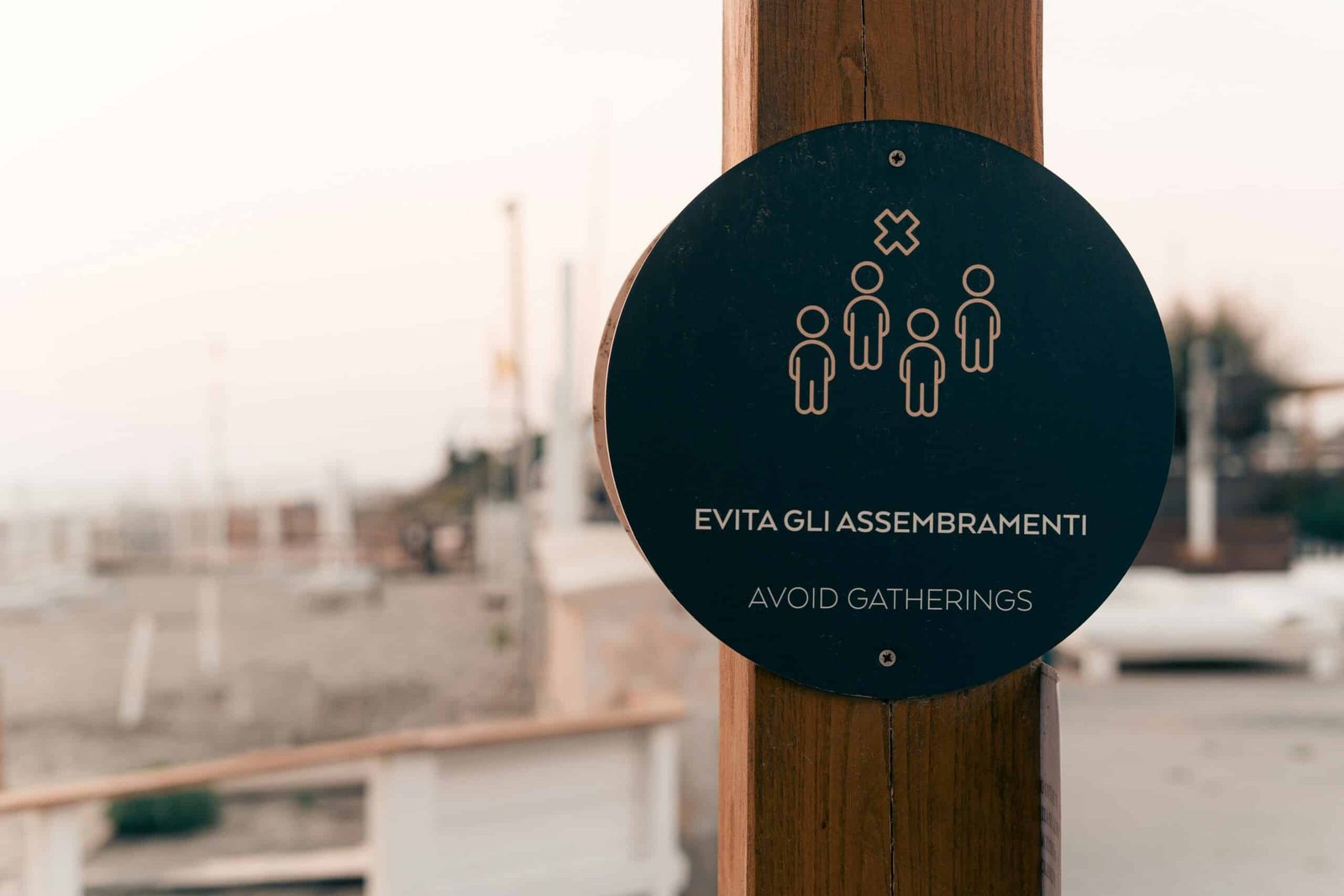Have you wonder if one language is enough in today’s society or you need to learn a second language? I grew up in the 80’s; during that time in America, having an accent of another language is a big RED flag. I will get make fun of by other kids in school because I have a Chinese accent. However, my parents insisted I speak with them in Chinese at home.
They always tell me it’s very important to know a different language. I will have plenty of time to learn to speak English attending school. I don’t really understand at that time, because I will always get make fun off by other kids in the school. As I can older and especially now in the 21st century, I have to thank my parents to stay consistent with me on speaking my home language.
Disclosure: This post may contain affiliate links and I may receive a small commission if you purchase through them. There is no additional charge to you.
The Growing Necessity of Bilingualism
In today’s society, where borders blur and cultures intertwine, the ability to speak more than one language is increasingly becoming not just a valuable skill, but an essential.
The global economy has led to an increased demand for individuals who can communicate across cultural and linguistic barriers. Multinational companies seek employees who can navigate diverse markets, manage international teams, and foster global partnerships. According to a study by the European Commission, 56% of Europeans believe that knowing more than one language is beneficial for work, while 72% of employers prioritize candidates with language skills.
Technology also play a major role to increase the needs for people to know more than one language. The internet connects people from various linguistic backgrounds, making cross-cultural communication more common and necessary. Social media platforms, online forums, and collaborative tools often require users to engage with diverse linguistic communities, enhancing the need for multilingual capabilities.
Improve Your Career & Business
As societies become increasingly diverse, the ability to speak multiple languages fosters better personal and professional relationships. It enhances cultural understanding, reduces prejudices, and promotes inclusivity. For instance, a study by the American Council on the Teaching of Foreign Languages found that bilinguals are more empathetic and better at perspective-taking, which are vital skills in a multicultural environment.
Speaking a second language reflects adaptability, cognitive flexibility, and a global mindset. It’s definitely increasing value in various sectors especially in areas like business, healthcare, and education. Whether for career advancement, personal growth, or simply to broaden one’s horizons, learning a second language holds a myriad of benefits that extend far beyond just words.

Language Diversity
Many countries have increase substantial in bilingual or multilingual populations. This phenomenon not only enriches individual lives but also brings significant societal benefits. For instance, Canada recognizes both English and French as official languages, fostering a culture of inclusivity and mutual respect. Similarly, Switzerland’s multilingual landscape, encompassing German, French, Italian, and Romansh, exemplifies a society where multiple languages coexist harmoniously, enhancing cultural exchange and national unity.
Bilingualism and multilingualism facilitate seamless communication and understanding among diverse groups. In Belgium, where Dutch, French, and German are officially recognized, citizens often switch effortlessly between languages, enabling smoother interactions in both personal and professional settings. This linguistic adaptability is particularly advantageous in international business, diplomacy, and tourism, where the ability to communicate in multiple languages can break down barriers and foster more meaningful connections.
Moreover, bilingual individuals often enjoy enhanced travel experiences and deeper cultural immersion. In countries like India, where numerous languages are spoken across different regions, being multilingual allows for a richer understanding of the nation’s diverse cultural tapestry. Similarly, in Spain, regional languages such as Catalan, Galician, and Basque coexist with Spanish, providing residents and visitors alike with a more nuanced appreciation of the country’s heritage.
The practical advantages of bilingualism extend beyond cultural appreciation. Data indicates that bilingual individuals often have better cognitive flexibility, improved problem-solving skills, and a heightened ability to multitask. These cognitive benefits are particularly evident in countries with high rates of bilingualism, such as Luxembourg, where many residents speak Luxembourgish, German, and French.
In essence, the global prevalence of linguistic diversity underscores the importance of learning a second language. By embracing bilingualism, individuals not only enhance their personal lives but also contribute to more cohesive, understanding, and culturally rich societies.
Top 10 Languages to Learn and Their Benefits

Learning a second language can significantly enhance personal and professional opportunities. There are different methods for you to learn a second language. Here are the top 10 languages to learn and their benefits:
1. Mandarin Chinese
Mandarin Chinese is the most spoken language globally, with over a billion native speakers. Mandarin Chinese opens doors to opportunities in business, trade, and culture. Additionally, understanding Mandarin opens up access to a rich cultural heritage and a rapidly growing market.
2. Spanish
Spanish is the second most spoken language in the world and is the official language in 20 countries. It is particularly influential in the Americas. Proficiency in Spanish can enhance communication in international business, travel, and cultural exchange, especially in Latin American markets. Also expanding markets in the United States.
3. English
Widely regarded as the global language of business, science, and diplomacy, proficiency in English is essential for international communication and collaboration.
4. French
A language of diplomacy and culture, French is spoken on five continents and is an official language in 29 countries, including key international organizations like the United Nations. Learning French provides access to diverse cultures and is beneficial in sectors such as diplomacy, international business, and the arts.
5. German
As the most spoken native language in Europe, German holds significant economic weight. Germany’s economic prowess and technological innovation make German a valuable language for business and research opportunities in Europe. Germany’s position as Europe’s largest economy and its strong industrial base make German crucial for careers in engineering, manufacturing, and finance.
6. Arabic
Arabic is spoken in over 20 countries and is the liturgical language of Islam. With the Middle East’s growing influence in global affairs, learning Arabic can unlock opportunities in business, diplomacy, and cultural exchange. The strategic economic significance, particularly in the energy sector, makes Arabic valuable. It also opens up cultural and diplomatic avenues in a region of growing global importance.
7. Japanese
Japan is a leader in technology, innovation, engineering, and culture. Japanese is critical for engaging with Japan’s advanced technology sector, automotive industry, and rich cultural offerings. Fluency in Japanese can also open doors to opportunities in global business and tourism.
8. Portuguese
Portuguese is the official language of Brazil, which has one of the world’s largest economies. It is also spoken in several African countries. Learning Portuguese can be advantageous for business, especially in emerging markets, and for exploring diverse cultural experiences.
9. Russian
Russian is widely spoken in Eastern Europe and Central Asia. Russia’s geopolitical influence and vast natural resources make Russian important for careers in international relations, energy sectors, and scientific research. With its vast territory and influence in Eurasia, Russian is crucial for anyone interested in business, politics, or cultural exchange in the region.
10. Italian
Italian is the language of art, music, and fashion, with Italy being a hub for these industries. Learning Italian can enhance careers in design, culinary arts, and tourism. It also provides access to Italy’s rich historical and cultural legacy.
Learning any of these languages can open up numerous avenues for personal growth and professional development, enriching one’s life and career in a globalized society.
Embracing Cultural Diversity Through Language Learning
In an increasingly interconnected world, the ability to communicate in multiple languages is not just a valuable skill but a gateway to embracing cultural diversity. Learning a second language provides a unique lens through which individuals can gain a deeper understanding of different cultures, traditions, and perspectives. This cultural empathy fosters a sense of global citizenship and paves the way for more inclusive and harmonious societies.
When individuals embark on the journey of learning a new language, they are often exposed to the rich cultural nuances that define the native speakers’ way of life. This exposure goes beyond mere vocabulary and grammar; it encompasses an appreciation for customs, social norms, and historical contexts. For instance, mastering Japanese might introduce learners to the subtleties of bowing in greeting, the significance of seasonal festivals, and the art of tea ceremonies, all of which reflect Japan’s deep-rooted cultural heritage.
Furthermore, understanding a new language can significantly reduce prejudices and misconceptions. By engaging with diverse linguistic communities, learners can break down stereotypes and foster mutual respect. For example, a study by the European Commission found that language learners are more likely to exhibit positive attitudes towards people from different cultural backgrounds, contributing to social cohesion and stronger community bonds.
Language learning also plays a pivotal role in promoting global peace and cooperation. As individuals become proficient in another language, they are better equipped to participate in cross-cultural dialogues and international collaborations. This proficiency is essential in diplomatic, business, and humanitarian endeavors, where clear communication and cultural sensitivity can lead to more effective and peaceful outcomes.
There are numerous examples of how language learning has helped individuals and societies become more inclusive and accepting of diversity. Programs like Erasmus in Europe and the Fulbright Scholarships in the United States have enabled countless students to immerse themselves in different cultures, fostering lifelong connections and breaking down barriers. These experiences not only enrich the learners’ lives but also contribute to a more understanding and united world.
In light of these benefits, it is clear that learning a second language is a powerful tool for embracing cultural diversity. By taking the first step towards acquiring a new language, individuals open themselves up to a world of opportunities, enriching their lives and contributing to a more inclusive and empathetic global community.
Health Benefits in learning a Second Language
Sharpen Your Decision-Making
Studies suggest that bilingual individuals exhibit enhanced cognitive abilities, including better problem-solving and decision-making skills. Switching between languages requires mental agility and flexibility, honing your brain’s capacity to process information efficiently and make informed choices.
Feed Your Brain
The benefits of bilingualism extend beyond linguistic proficiency. Learning a second language stimulates brain activity, promoting neuroplasticity and delaying cognitive decline in later years. It’s like a workout for your brain, keeping it agile, adaptable, and continually learning.
Boost Your Confidence
Mastering a second language is a testament to your dedication and perseverance. As you become more proficient, your confidence grows, empowering you to tackle new challenges with courage and resilience. Language learning is a journey of self-discovery, building not only linguistic skills but also self-assurance and self-esteem.
In conclusion, learning a second language is not just about acquiring a new set of words; it’s about embracing a new way of thinking, connecting with others on a deeper level, and enriching your life in countless ways. In today’s society, where diversity is celebrated and global connections are essential, bilingualism opens doors, broadens horizons, and fosters a more inclusive and interconnected world. So, whether you’re embarking on a new career path, planning your next adventure, or simply seeking personal growth, don’t underestimate the transformative power of learning a second language. Start your journey today and discover the boundless possibilities that await you.









